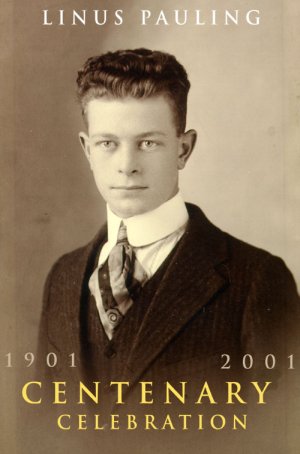On February 28, 2001, the one-hundredth anniversary of Dr. Linus Pauling's birth was celebrated with an all-day conference held at Oregon State University's LaSells Stewart Center. Titled "A Liking for the Truth: Truth and Controversy in the Work of Linus Pauling (1901-1994)," the symposium touched on a wide range of topics related to Pauling's extraordinary - and, at times, tumultuous - legacy as a scientist and peace activist.
The main themes of the papers presented at the centenary event included the evolution of contemporary femtoscience; the historical development of accurate models of molecular structure; the consequences of Pauling's vocal anti-nuclear activism in the 1950s and beyond; the unique circumstances faced by Linus and Ava Helen Pauling during their Guggenheim residence in Europe in 1926-1927; and the contours of everyday household life for the Paulings in 1930s and 1940s southern California.
The event's keynote speaker was Dr. Ahmed Zewail, Linus Pauling Chair Professor of Chemistry and Professor of Physics at the California Institute of Technology, and recipient of the 1999 Nobel Prize for Chemistry. Other speakers included renowned crystallographer Dr. Jack Dunitz, Pauling biographers Tom Hager and Dr. Robert Paradowski, and the eldest son of Linus and Ava Helen Pauling, Dr. Linus Pauling, Jr. The day's proceedings concluded with an engaging and often humorous panel discussion moderated by Oregon State University President Emeritus, Dr. John Byrne.
The Pauling Centenary Conference was organized by the Pauling Heritage Committee, a group whose diverse membership was reflective of the wide impact that Pauling's life and work has made on the Oregon State University campus. Members of the Heritage Committee included representatives of the OSU Libraries, the Linus Pauling Institute, the OSU departments of Chemistry, Chemical Engineering, History and Economics, the Office of International Education, and the OSU Foundation.
Complete video of all of the symposium presentations is presented here, along with full transcriptions.


